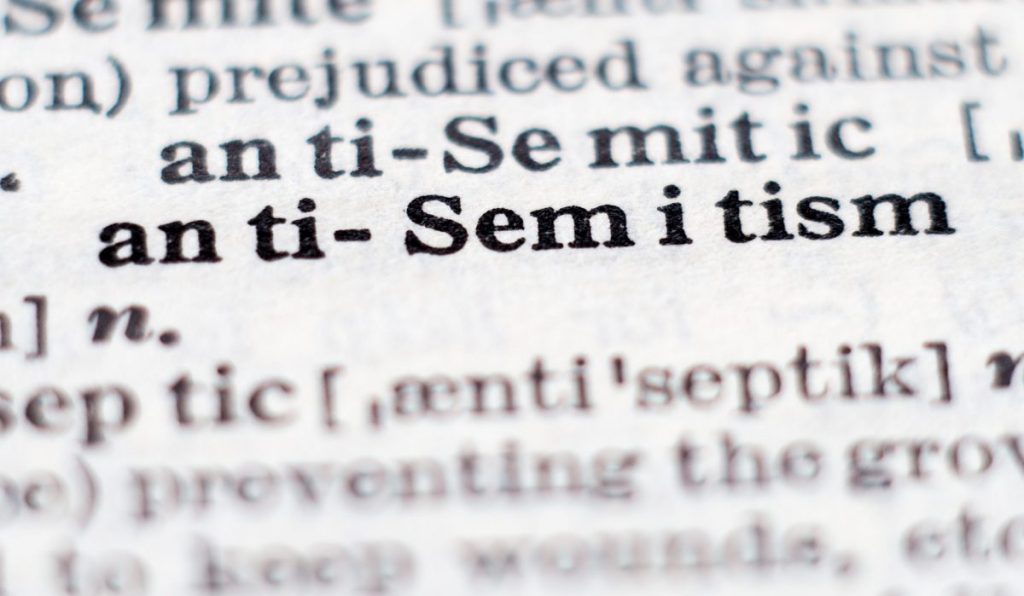Australia/Israel Review
AIR New Zealand: Activist ire over IHRA
Oct 3, 2022 | Miriam Bell

Joining the International Holocaust Remembrance Alliance (IHRA) could be an important step forward in New Zealand’s battle against the rise of antisemitism, but anti-Israel lobbyists are already trying to undermine any such plans.
New Zealand has been slow to join the 44-member alliance, which works to promote Holocaust education and also plays a role in combating antisemitism and Holocaust denial.
Australia became an observer in 2015, moving from observer to liaison in 2017, and became its 33rd member in 2019, but New Zealand only became an observer recently.
In June, the NZ Ministry of Foreign Affairs & Trade (MFAT) announced the country’s application to become an observer had been accepted, adding:
“New Zealand strongly believes that the international community must stand firm against every form of intolerance wherever it may be found. It is only through an understanding of the lessons of history that we can ensure atrocities such as the Holocaust never happen again.”
The announcement came not long after the release of a study that revealed concerning levels of antisemitism and widespread ignorance about the Holocaust in New Zealand. Over the course of the COVID pandemic, there has also been a noticeable rise in antisemitic rhetoric from some quarters.
The move was welcomed by community groups including the New Zealand Jewish Council (NZJC), the Holocaust Centre of New Zealand, and the Holocaust & Antisemitism Foundation Aotearoa New Zealand.
NZJC President Stephen Goodman said that joining the IHRA gave the government a tool to help combat the rise in anti-Jewish sentiment.
Dangerous international conspiracy theories about Jewish people had been given momentum by the pandemic, he said. There had also been a concerning growth in Holocaust distortion, which included people wearing yellow stars to oppose vaccine mandates and accusing the Government of acting like the Nazi regime.
“Anyone who understands what occurred in the Holocaust understands this is not only a false and inappropriate comparison, but it belittles the suffering of Jewish people, and others, who were murdered by the Nazi regime because of their race and religion.
“The Jewish community congratulates and thanks the Government for joining IHRA. It sends a powerful message that it is committed to protecting all New Zealand’s ethnic minority communities,” he added.
Holocaust Centre of New Zealand chair Deborah Hart is one of the experts in the country’s recently announced IHRA delegation. On behalf of the delegation, she said they believe the IHRA is important to help fight racism against all peoples.
“We know that learning about the Holocaust teaches our young people and future leaders to look at one another with humanity and kindness. The Holocaust shows us how hate can start small and that we all have a responsibility to counter it.
“Our delegation will work globally to ensure the experiences of survivors and the memories of those who were killed are preserved, and the lessons of the Holocaust continue to be taught to avoid future genocides.”
Becoming an IHRA member also signalled the Government’s support for the work of the Holocaust Centre, and the delegates hoped that being part of the IHRA would lead to more students learning about the Holocaust, she said.
Hart added that the delegates hoped New Zealand would progress down the path to full membership.
Not everyone was happy with the Government’s move. The Palestine Solidarity Network Aotearoa (PSNA) released a statement claiming that joining IHRA was a “weak, cowardly decision”, and was undermining the fight against antisemitism and racism of all kinds.
It railed against the widely used IHRA Working Definition of Antisemitism, and advocated for the Boycott, Divestment and Sanctions movement against Israel. “New Zealand should adopt the Jerusalem Declaration on Anti-Semitism and insist on Holocaust education in every school in the country as part of a comprehensive anti-racism education programme,” it said.
Unfortunately, certain members of the pro-Palestinian movement, notably long-time activist John Minto, continue to have a high profile on this issue. According to Israel Institute of New Zealand Director David Cumin, chief Human Rights Commissioner Paul Hunt has agreed to consult with Minto on matters of antisemitism in New Zealand, for example.
Hart noted that Minto seemed to agree that Holocaust education was the antidote to growing racism, but she pointed out that adopting the IHRA’s Working Definition of Antisemitism was a separate process to IHRA membership, which was first and foremost about such education.
“As John Minto’s comments show, there is debate about what antisemitism is, and anti-Israel Government sentiment should never be a backdoor to hatred towards Jewish people in Israel or throughout the diaspora,” she said.
Tags: Antisemitism, IHRA definition, New Zealand
RELATED ARTICLES

Antisemitism in Australia after the Bondi Massacre: Arsen Ostrovsky at the Sydney Institute





